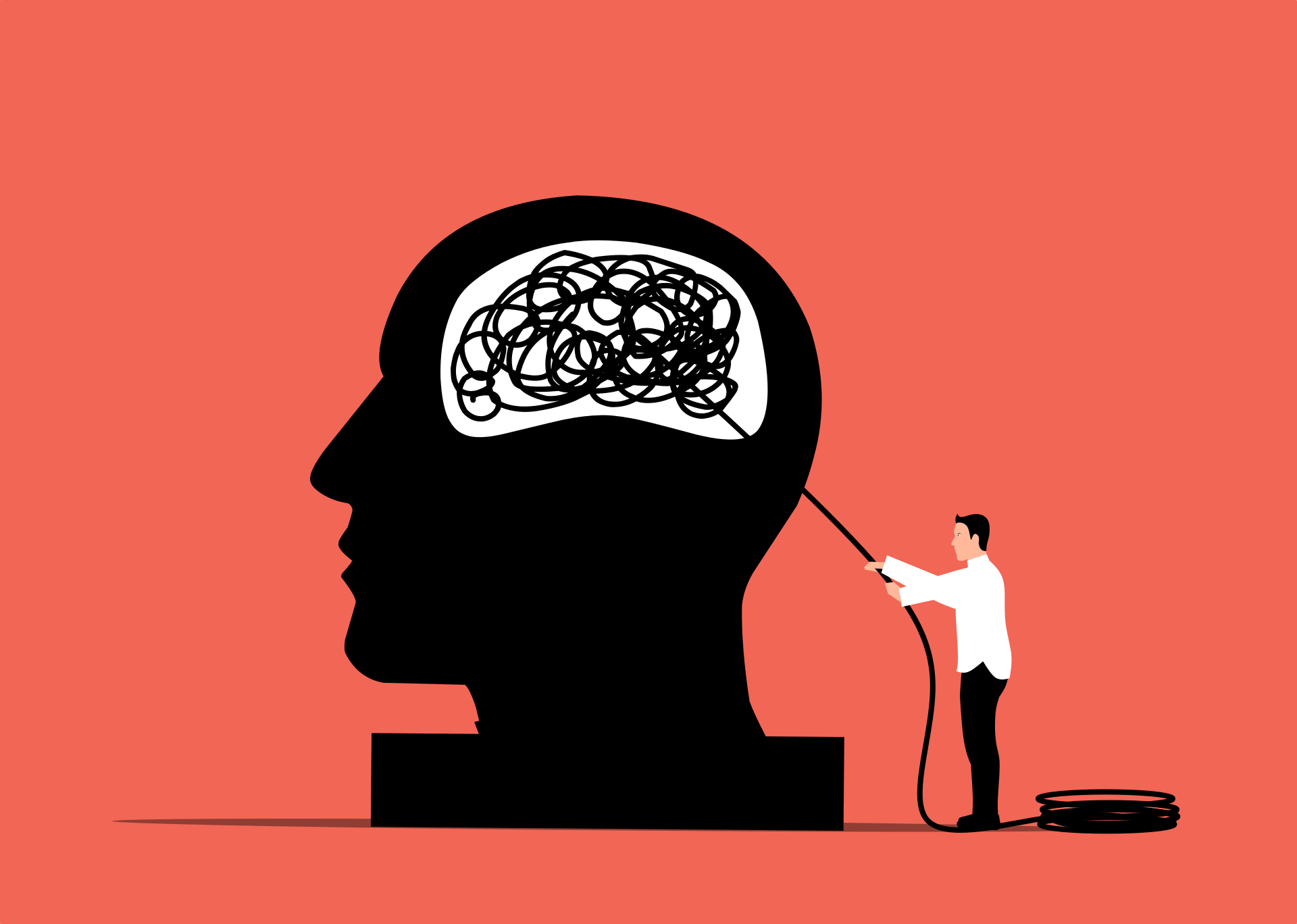Nearly 20% of American adults have a mental illness, so if you’re struggling right now, you’re not alone.
If you have decided it’s time to start healing, you might feel overwhelmed in your search for therapy options. So how do you find the perfect therapist? What kind of treatment will be best for your condition?
Don’t let the fear of the unknown stop you from getting the help you need. We’re going to look at two of the most common therapy treatments today to help you fight indecision and start down the path of healing.
Keep reading to learn the critical differences between cognitive behavioral therapy vs psychotherapy.
Contents
What Is Psychotherapy?
Psychotherapy is what most people imagine when they picture going to see a therapist for the first time. You often see it portrayed in movies or TV as a patient sitting or lying on a couch, staring at the roof, recounting their past. The therapist sits in a big leather chair across from the sofa, interjecting with the occasional “mmhmm” and “tell me more about that.”
Psychotherapy is sometimes also known as talk therapy. While it does require patients to open up to their therapists, the above portrayal in the media isn’t exactly a wholly accurate picture of how it works.
Psychotherapy is an umbrella term for a variety of mental health treatment methods. It involves a therapist encouraging their patient to talk about their lives and their issues.
What Is Cognitive Behavioral Therapy?
Cognitive behavioral therapy (CBT) is a more hands-on approach to therapy.
Instead of diving into the patient’s past or going into extensive talking therapy sessions, CBT provides a more compressed series of sessions that focuses on the patient’s negative thoughts and attitudes. CBT aims to make a connection between the thoughts holding the patient back and their behavior.
Once patients can identify their negative thought patterns, CBR can help eliminate these thoughts and shift focus to more positive ones.
What Types of Psychotherapy Are There?
You already know that CBT is a form of psychotherapy, but a therapist may choose other psychotherapy treatments depending on their patients’ diagnosis.
Dialectical behavior therapy (DBT) was initially created to treat suicidal patients. Now, therapists use it to treat a wide variety of mental illnesses.
Eye movement desensitization and reprocessing (EMDR) is often used in patients with PTSD. It uses a structured eight-phase approach to curtail anxious feelings and emotional pain resulting from a particular trauma.
Mentalization-based therapy (MBT) focuses on increasing a patient’s ability to mentalize. It’s excellent for people with personality disorders, eating disorders, and drug addiction.
Psychotherapy includes alternative and complementary therapy options such as animal-assisted therapy and art or music therapy.
What Types of CBT Are There?
CBT may be a form of psychotherapy, but it breaks down further into different types.
Exposure therapy is often used in patients with OCD, PTSD, and specific phobias. Therapists try to help them identify their triggers and teach them how to avoid the anxious or obsessive behaviors that result from them. This methodology does involve exposure to said triggers, so it might not be suitable for everyone.
Mindfulness-based stress reduction (MBSR) is an eight-week program that provides patients with mindfulness training. It’s great for those with stress, anxiety, depression, and chronic pain.
A CBT therapist might also use guided discovery, journaling, deep breathing exercises, and role-playing.
What Are the Benefits of Both Therapy Types?
There are a lot of benefits to going to therapy, regardless of which type you decide is best for you.
The benefits of psychotherapy include the following:
- Better overall health
- Better relationship building
- Easier to navigate through trauma
- Confronts anxious thoughts
- Supports for any situation
The benefits of benefits of cognitive behavioral therapy include the following:
- Gives hope
- Helps develop self-esteem
- Helps people to relax
- Encourages rational thought processes
Conditions Treated in Cognitive Behavioral Therapy vs Psychotherapy
CBT is most commonly used to treat America’s two most common mental illnesses – anxiety and depression. It can be used for other physical and mental health issues, though. CBT may also provide relief for people suffering from
- Panic Disorders
- Phobias
- Post-traumatic stress disorder
- Psychosis
- Insomnia
- Alcohol misuse
CBT is sometimes used for people with chronic health conditions like fibromyalgia, chronic fatigue, or irritable bowel syndrome.
Psychotherapy can help individuals manage various conditions, including the above. It can also address problems such as:
- Addiction
- Borderline Personality Disorder
- Physical ailments and symptoms
What To Expect At Your First Appointment
Attending therapy for the first time can be terrifying, so knowing what you’re getting into can help alleviate those first-visit jitters.
Your initial appointment will require you to present your current concern so your therapist can develop a treatment plan. Then, you’ll talk about your goals for therapy, and your therapist will ask questions about your symptoms, home life, and history.
The first session might take a lot out of you. You’ll be going through a lot of information, after all. Therefore, we recommend booking your appointment on a day when you don’t have to go to work afterward.
Which Is Best For You?
It’s hard to say if cognitive behavioral therapy vs psychotherapy is best for your needs. The first step is to determine what you’re currently struggling with and decide which treatment modality is suitable.
Either way, know that taking a step towards healing is enormous and something to be celebrated. Give yourself a lot of grace and patience as you begin your journey into recovery.
Keep browsing our Health blogs for more informative articles like this one.



